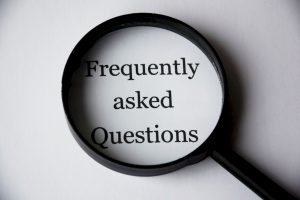Shared from The Senior Medicare Patrol (SMP) Scoop
This article is from The Senior Medicare
Patrol (SMP) Scoop, a newsletter to help Medicare beneficiaries and their
advocates prevent, detect, and report health care fraud, errors, and abuse.
The Senior Medicare Patrol (SMP) received information from a Wisconsin resident
whose husband recently died. Just a few weeks after her husband’s death,
“Michael,” an “insurance agent” called to help the widow “get the lowest price
on Medicare.” Obviously suspicious, she contacted her county’s Aging and
Disability Resource Center and connected with the Elder Benefits Specialist who
then made a connection with SMP to investigate the issue.
We all know that we should not make our personal information public (such as
addresses, birth dates, birthplaces, family members’ names, nicknames, or even
hobbies). However, we often publicly share personal information just like this
when paying tribute to someone at death. The more personal facts you provide in
an obituary, the greater risk of scams – both for the deceased and their
survivors.
When writing an obituary, it is best to give
the deceased’s age but leave out the birth date, middle name, home address,
birthplace and mother’s maiden name. Even including names of survivors can pose
risks. Scammers are always coming up with new and creative deceptions, but the
following are some of the most common scams using obituaries:
Identity Theft
Identify theft is not just for the living. Each day, thousands of deceased
people are victims of identity theft. In fact, nearly 800,000 people a year are
targeted after death because no one is checking their credit reports. Scammers
can use details from an obituary to figure out or purchase a Social Security
Number, which allows them to fraudulently open credit card accounts, apply for
loans, or even file tax returns to collect refunds. Many people do not know
that the first five digits of a Social Security Number are linked to a time and
place of birth!
Grandparents Scam
Scammers use names published in obituaries to pose as grandchildren of the
deceased, calling grieving survivors with stories about being mugged or
arrested and needing money. Research shows that with any scam, your
vulnerability is highest in the three years after a major stress. Obituaries
help scammers identify grieving spouses immediately following the death and can
seem credible by citing names and other personal traits.
Deceptive Debt Collection
Scammers often call spouses, children, or siblings to make a claim that
survivors must repay the deceased’s debts. However, unless you cosigned the
obligation or are otherwise legally responsible, debts are paid from the estate
of the deceased person—not from surviving relatives.
Fictitious Life Insurance
Sometimes, scammers contact survivors and claim the deceased person took out a
huge (but often that before benefits can be collected, a final premium (or
taxes, handling fees, etc.) must be paid.
Remember legitimate insurance companies don’t request upfront fees by wire
transfer or prepaid debit card.
Burglary
If the deceased’s address and the time of the memorial service are in the
obituary, burglars know that no one will be home, and neighbors may also be
paying respects. Therefore, you’ll want to leave the home address out of the
obituary.
Want to receive The SMP Scoop? Sign up by emailing smp-wi@gwaar.org or
calling the free confidential helpline at 888-818-2611.



